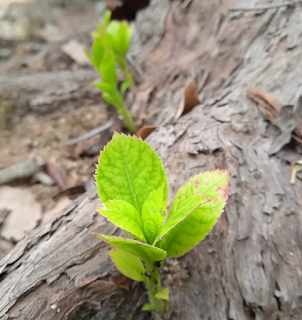ORGANIZATIONS AS A SEED OF TRANSFORMATION IN SOCIAL AND SOLIDARITY ECONOMY
Original article published in Catalan on 10/10/2022
This is the reflection I shared on October 3, 2022, during the inaugural
presentation of the Week of Social and Solidarity Economy in Mataró. A
reflection born from theoretical knowledge; from ideas, vision, and dreams; and
from the experience of the organizational transformation process that we have
been promoting and building at Fundació el Maresme for the past few years.
Ideas,
vision, and dreams about how Social and Solidarity Economy (SSE) organizations
can contribute to building a fairer, less unequal world where people and their
well-being are at the center of the economic model.
The main
idea of this reflection is that the way companies, organizations, and entities
are organized is not neutral, and if they truly want to be active in social
transformation, it must begin within the organizations themselves.
Organizations should be the mirror what they aim to generate around them.
Social and
Solidarity Economy emerges as an alternative model against the inequality
generated by the current economic system. It proposes alternative practices by
applying universal values such as equity, justice, solidarity, commitment to
the environment, and democracy. It is an economic model that places people and
their well-being above profit and money. Money is seen as a tool to reach that objective,
rather than the objective of the economy itself. Common elements of SSE
entities include a focus not only on what they do but also on how they do it.
Five main axes define this "how they do it": democratic governance,
quality of labor, sustainability, community engagement, and equity.
Democratic
governance is an organizational framework that incorporates the voices of
different stakeholders. It is based on organizational models where management
relies on self-management and self-organization of work teams. Decision-making
is shared, not held by individuals, but by teams. Inclusive models that also search
empowering individual and collective. Models based on collective construction,
understanding it not just as the sum of voices but as the generation of
collective intelligence, where the result surpasses individual intelligences'
sum. It recognizes diversity in people, knowledge, and life experiences.
What do we
mean by organizational models? Primarily, we refer to the architecture and
dynamics of organizations. Architecture graphically represents how a specific
entity is organized—essentially the organizational chart. Depending on the
architecture, different things will happen within the organization. Dynamic
organization refers to how work happens within an organization. In
organizational models based on democratic governance, dynamics that facilitate
listening to different voices, self-management, shared decision-making, and
collective construction are promoted.
An
important aspect of SSE organizational dynamics is again how these dynamics are
carried out. This how should align with values like respect, active listening,
solidarity, sustainability, and equity, among others. Recognition of diversity,
awareness of intersubjectivity, acknowledgment of feelings and emotions,
awareness of power dynamics—how different powers operate—and understanding of
hierarchies are important aspects.
For me,
this "form," that how, would be the underground of organizations:
that invisible, intangible layer that supports and makes organizations unique.
We must be aware of this, nurture, and care for it to have a fertile, cared
for, safe, and sustainable underground. An underground that contributes to
sustaining everything above it: the organizational models we are pursuing.
So, my
idea, vision, dream to promote Social and Solidarity Economy is that if SSE
entities want to contribute to transforming the economic model, they themselves
must become part of the transformation. This transformation should be seen
fractally: entities should transform into what they want to see externally, but
this transformation should start from individuals, teams, organizations, and
the ecosystems they're part of.
Therefore,
if we want a more equitable, solidarity-driven, sustainable society with
greater participation, commitment to the community, and promoter of social
change, the organizations themselves must move towards models that reflect
these values.
Social and
Solidarity Economy entities cannot be organized according to traditional
pyramid structures, with organizational models based on business models that don't
align with the economic model they aim for. They need to be organizations based
on democratic governance models; models that prioritize people and care; models
with internal transformative will that influences their around; models with an
ecological rather than mechanistic focus; agile models aimed at responding more
quickly and innovatively to complexity; models that bring out different kinds
of leadership; more community-oriented and inclusive organizational models,
permeable to the community to work on the desired economic model change; more
participatory and self-managed models while still caring for what unites
organizations: their organizational culture, their DNA; more feminist and less
paternalistic organizational models; models where work is more than just a
salary but a way to contribute to social transformation.
I concluded
this reflection by sharing and briefly explaining the organizational
transformation experience we've been fostering at Fundació el Maresme since
July 2020, as a Social and Solidarity Economy entity. You can find a brief
explanation of the transformation we're building in the following 2-minute
video: https://www.youtube.com/watch?v=gnrS5XGSkhE.
Being aware
that this is a slow transformation but desiring it to endure over time.
Profound changes cannot be fast; they need to deeply root in a fertile,
cultivated, and well-taken-care-of underground. Aspiring to be one more seed of
the change we want to see.
You can
view the full presentation at the following link: https://www.youtube.com/watch?v=VRiI8wqFCCw&t=570s
___
Some inspiring
readings:
- DARCELES, Maite (2009). Guías para la transformación. BAI, Berrikuntza Agentzia = Agencia de Innovación.
- FANTOVA,
Fernando (2017) Manual para la gestión de la intervención social.
Editorial CCS
- LALOUX, Frederic. (2016). Reinventing Organizations. Garra.
- MANENT,
Ariadna & Fantova, Fernando (2020). "Transformación
Organizacional e Inclusión Comunitaria". Ley de Engel (www.lleiengel.cat)
- MARCO, Lluís (2021): “El poder y los procesos de transformación organizacional” http://www.hobest.es/blog/el-poder-i-els-processos-de-transformacio-organitzacional
- MINDELL,
Arnold (2004). Sitting in the Fire: Large Group Transformation Using
Conflict and Diversity. Icaria Editorial.
- VAZQUEZ,
Alfonso. (2000). La imaginación estratégica, Granica.




Comentarios
Publicar un comentario